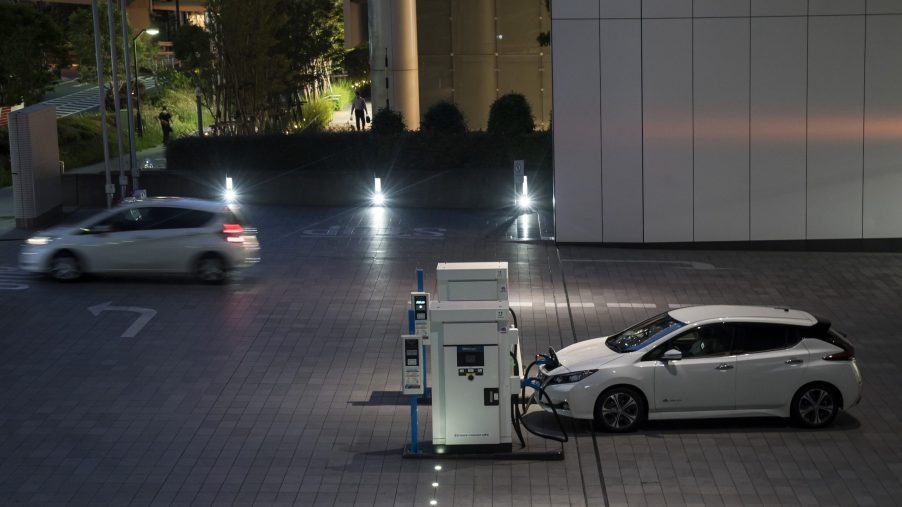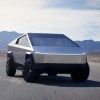
The Nissan Leaf Recently Hit an Impressive EV Milestone
Looking at some trends, 2021 is looking to be the year we see an electric car revolution. It seems everywhere you look there is a new electric vehicle (EV) hitting the market. However, we shouldn’t forget that some EVs have been around for over a decade. The Nissan Leaf, for example, was introduced in Japan and the United States in 2010. Even today, it continues to be a favorite among EV buyers, with more than a half-million sold globally thus far, according to Autotrader. That’s a seriously impressive milestone. But the Nissan Leaf has gradually lost its top spot to competitors like the Tesla Model 3 and Chevrolet Bolt EV.
Competing against Tesla isn’t easy
Despite a growing number of EVs hitting the market and taking the spotlight away from the Nissan Leaf, it deserves recognition for competing as well as it did against Tesla. After all, Tesla had a four-year head start, revealing its Roadster in July 2006. Between 2007 and 2009, most of what Tesla did production-wise centered around its ingenious marketing strategy. For example, the 2006 reveal was a 350-person invitation-only event held in Santa Monica, California, in Barker Hangar at Santa Monica Airport.
This event brought about an air of exclusivity that not only piqued the public’s interest but assured great sales in the future. Elon Musk also had huge support from many celebrities such as Jay Leno, Ben Affleck, Cameron Diaz, Will Smith, Leonardo DiCaprio, and many others. No matter how some may feel about Musk, the mainstream excitement and acceptance for pure electric vehicles can be traced back to Musk and Tesla Motors, according to Investopedia.
EVs became even more popular when Tesla introduced the Tesla Model 3, with 139,300 of them delivered in Q3 2020. According to Car and Driver, Tesla has sold 318,000 vehicles since the beginning of 2020, making it the most popular EV in the world.
EV sales will be important for Nissan moving forward
Competition has been good for the Nissan Leaf; competition has pushed Nissan to greatly improve on the Leaf’s overall design and electric-car range. The 2010 model only had a range of around 73 miles, while the 2020 model offers an estimated range of 226 miles. Other 2020 updates included Nissan’s Safety Shield 360 technology standard for every trim, a better infotainment system, including Apple CarPlay and Android Auto integration (also standard). However, considering the 2020 Tesla Model 3 has an MSRP of $35,000 and the 2020 Nissan Leaf S starts at $32,500, Nissan still has a long way to go.
A poor business strategy and selection of uninspiring vehicles has resulted in the Japanese-based vehicle manufacturer struggling for years in the United States. The COVID-19 pandemic made things even worse for Nissan—a brand suffering from an identity crisis as well. All of these things have led to Nissan announcing its new mission to win back the North American market. And with 2021 poised to be the benchmark year for EV sales, EV sales will be crucial for Nissan moving forward given how the company has struggled recently.
It’s not just about the range or sporty performance
We here at MotorBiscuit try our best to keep things fair and balanced. With that said, despite Tesla’s seeming superiority in certain areas, the new Nissan Leaf offers more in other areas. Performance, range, and price aren’t the only considerations buyers make when purchasing an EV. While you can drive a brand-new Model 3 off the lot for $35,000, the 2021 Leaf SV Plus has way more features.
With an MSRP of $39,125, the base Leaf SV Plus (if you don’t purchase any of the extra options) has 17-inch machine-finished aluminum-alloy wheels, Nissan’s “Door-to-Door Navigation with Premium Traffic,” NissanConnect EV which is powered by SiriusXM, fog lights, leather-wrapped steering wheel, a 62-kWh battery pack, standard adaptive cruise control, optional active driving assist, among other features. And while we’re on the topic of trim models, the Nissan Leaf clearly offers plenty of trim options for buyers to choose. The current Tesla Model 3 only offers three primary trim levels: Standard Range Plus, Long Range, and Performance.
At the end of the day, it’s a competition of form versus function.


